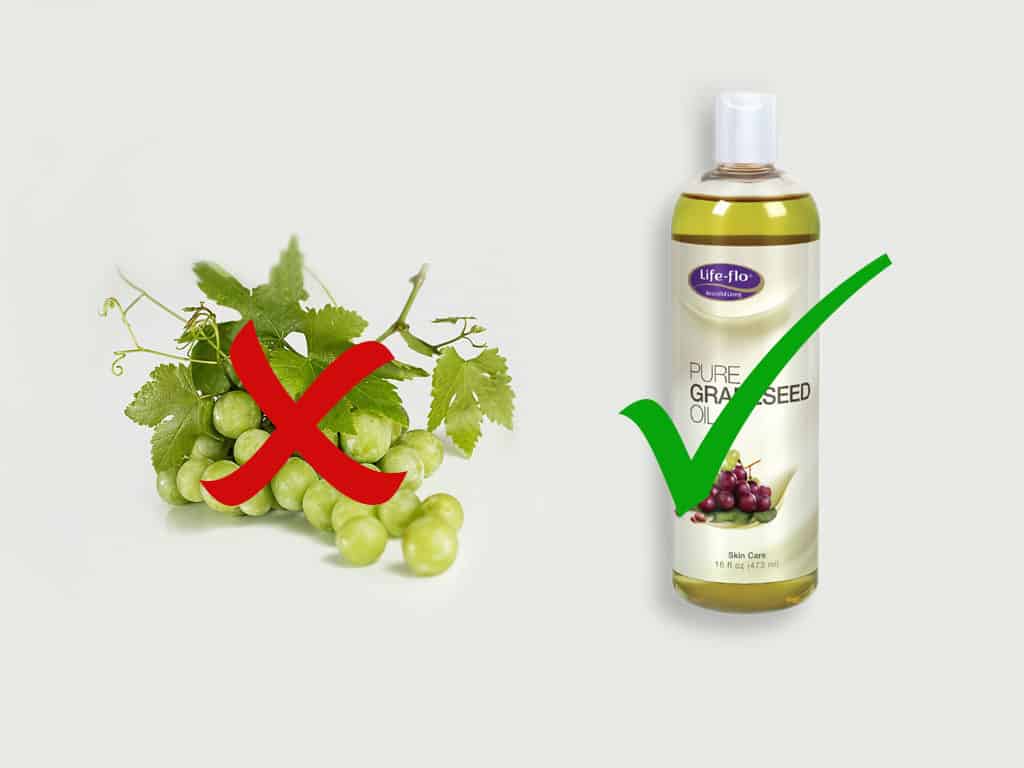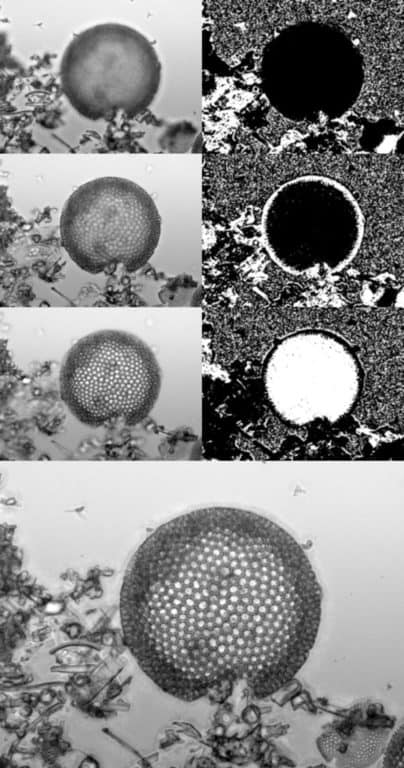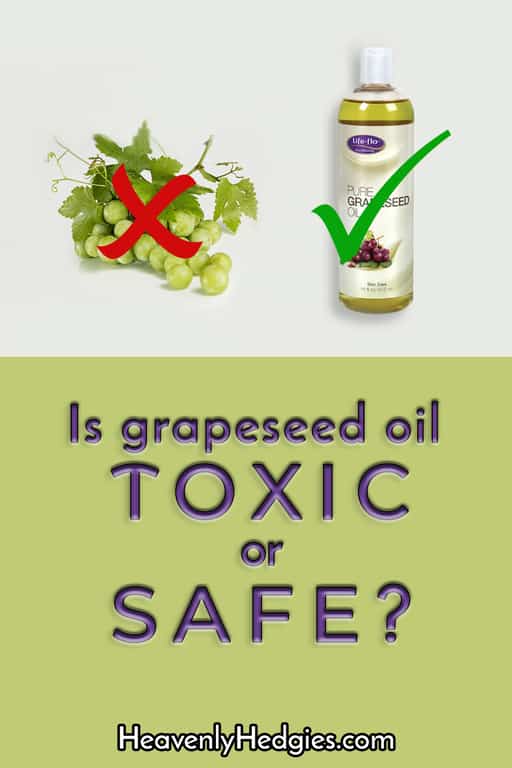There are many hedgehog care “facts” floating around the internet and getting perpetuated without substantiating evidence. It really can be confusing for both new and experienced hedgehog owners. Since hedgehogs haven't been mainstream pets for long, there isn't as much known about them as there is about dogs and cats. Our goal is to address some of these so-called hedgehog care “facts” and separate fact from fiction.
AFFILIATE DISCLOSURE: Heavenly Hedgies is an Amazon Associate. We have partnered with them and other reputable merchants when they sell something that we feel will benefit our readers. By purchasing through our links, we may earn a small commission on sales, that helps us continue to provide informative and educational information for hedgie lovers. And the best part is that there is no additional cost to you. Thank you for being a loyal and supportive reader here at Heavenly Hedgies.
- How Do Hedgehog Care Facts Get Twisted?
- The Grape Seed Oil Scare
- Hedgehog Care Facts About Using Heating Pads For A Heat Source
- Hedgehog Care Facts: The Misconception About Plastics
- Why CBD Oil Is Not Harmful To Hedgehogs
- The Facts About Diatomaceous Earth As A Hedgehog Sand Bath
- Mites Don't Affect Other Pets or Humans – Oh Really?!
- So What Should I Believe About Hedgehog Care Facts?
How Do Hedgehog Care Facts Get Twisted?

When you were a child, did you ever play the classroom game, “Tell you a secret”? It's been called many names, like “grapevine”. It begins with a teacher whispering a secret to the first person. Then, each in a line of students whispers the secret to the next until it reaches the end. The last person to receive the secret has to reveal to everyone what the secret was. You know what? The secret is NEVER exactly the same as it began. Why is that? Often, what a person hears or understands isn't what was said. Additionally, each person repeats what they were told filtered by their own experiences and beliefs.
So what's this got to do with how hedgehog care facts get twisted? Every piece of information we receive is processed by the brain in comparison to our past experiences, beliefs, and things we've heard (or read). Often when we pass along information, we don't do it verbatim. Instead, we mix in our own personal belief system and paraphrase things we've heard. Often the original truth is lost in translation. That includes hedgehog care facts.
The Grape Seed Oil Scare

Several hedgehog sites have warned against the use of grape seed oil as being toxic. Grape skin, pulp and the seeds themselves are harmful to hedgehogs (and other pets) if ingested. The skin and pulp has caused renal failure in some dogs, cats, and ferrets, so withholding these from your hedgie for safety sake is best. As for grape seeds, when ingested by a hedgehog, they present a choke hazard or bowel obstruction. In the spirit of full disclosure, there is a negligible trace amount of cyanogenic compounds (cyanide) in grape seeds too. However, they actually came out at the bottom of the list in a study on seeds that have cyanogenic compounds. In contrast, flax seeds actually have a measurable amount. Yet, flax seed oil is promoted as beneficial for hedgehogs in their bath and on their food for dry skin issues.
Regarding grape seed oil production, there are mechanical and chemical ways to extract the oil from the seeds. One way is by mechanically pressing the seeds (cold pressing). This method produces more waste and yields less oil, therefore is more costly. The other way is to use a solvent and then distill the solvent out. Unfortunately, the distillation process doesn't completely remove all remnants of the solvent used.
Although we have talked about the safety risks that grapes can pose to pets, we have no data indicating risks from exposure to grapeseed extract or oil. Most nutritional supplements and other products containing grapeseed oil or extract contain relatively small amounts, and we’ve yet to note any serious problems.
~ASPCA Animal Poison Control Center
The True Facts about Grape Seed Oil Use With Hedgehogs…
It's possible that someone may have purchased solvent-distilled grape seed oil rather than cold-pressed and it poisoned their hedgehog. It's also possible that someone fed a grape and their hedgie died from grape pulp toxicity, choking or from a bowel obstruction. Regardless of how this scare began, it's not true. When it comes to use with hedgehogs, there's absolutely no reason to avoid using a drop or two of cold pressed grape seed oil in their bath water to help moisturize their skin. As with any oil used in a bath, thorough rinsing helps prevent clogged pores. And please make sure it is cold pressed similar to the one we linked above! In fact, when purchasing any type of oil derived from seeds, we recommend that you only buy cold pressed to avoid possible solvent poisoning.
Hedgehog Care Facts About Using Heating Pads For A Heat Source
Anytime you mention using a heating pad as a heat source for a hedgehog in any Facebook hedgie group, you're going to get blasted. Why? In a nutshell, sensationalism and tragedy chasers have influenced the spread of this untrue hedgehog care fact. When you do a Google search for “how many fires have been started by heating pads”, a personal injury attorney, that specializes in heating pad fires, holds the top two slots. When reviewing that website's “Causes of Heating Pad Fires“, there's a common theme that runs throughout – lack of good consumer judgement. Every one of the causes listed were preventable if the consumer had exercised good judgement, other than the few cases of manufacturer defect.
Our resident mascot, Quilly, has a safely constructed heating pad heat source for his home. Ceramic tiles act as a fire block in the event of a short and they hold heat for a short time, in the event of a power outage. Quilly's home pictured above is a Critter Nation small animal cage which can be purchased here.
Heating pads are not dangerous. Use of any heating pad – or any other electrical equipment, appliance, or apparatus – that has obvious damage is dangerous. Heating pads intended for human use are dangerous because they aren't designed to be on for long periods of time. Also, animal heating pads (like for reptiles) are dangerous without thermostatic control to turn the unit off/on according to the desired temperature settings.
Any heating system, including CHEs (ceramic heat emitters) can be dangerous if used improperly or without proper safety protocols in place. The system displayed above shows one way to use heating pads safely for your hedgehog. For other facts on heating your hedgehog's cage, please read The Best Hedgehog Cage Heater System.
Arguments about Ambient Air Temperature
One of the objections you may encounter is the claim that heating pads do nothing for the ambient air temperature, which is what is important. To that, we say, hogwash! Because heat naturally rises, this isn't an issue. And if you've ever seen the heat waves off of asphalt in the summer, you know this is true. On the temperature gauge in the third picture above, the temperature to the right is the ground temperature. At the same time, the temperature on the probe to the left, is the ambient temperature 6 inches above ground level. Both of these readings are in a home that is maintained at 73-74 degrees Fahrenheit.
Hedgehog Care Facts: The Misconception About Plastics

Plastic totes DO NOT make great cages! Although totes may have the lowest upfront cost, we feel that the risk is too great. One of the greatest expenses of owning a hedgehog are the veterinary costs – especially veterinary costs for exotic pets. Hedgies are prone to multiple (and costly) diseases. Therefore, we believe that educated hedgehog owners who know the risks will make alternate choices. In turn, this leads to a healthier and happier hedgie. It's a win-win situation! Better health for them and less cost for you.
Most people don't understand that many plastics are porous (even though they seem solid). And porosity holds odor and bacteria. This can lead to bacterial and fungal infections which increase your veterinary costs. Additionally, plastic totes jeopardize hedgehogs by exposing them to harmful chemicals (if the tote isn't made with a safe plastic). We recommend that hedgie owners avoid plastic tote cages – even ones that are deemed safe. But if you do opt to use a plastic tote, please check that the manufacturer makes them from polypropylene and polyethylene (which are considered the safest of the plastics). You can read more about what kind of cage a hedgehog needs here. There may be other manufacturers, but Sterlite is the only one we know of that states, “… No PVCs, Latex, Teflon, Phthalates chemicals, fungicides, Bishphenol A (BPAs), or antibacterial chemicals are used in our manufacturing process”.
And while on hedgehog care facts about plastics…
PVC pipes are NOT great tubes for hedgehogs or any other animal for that matter. PVC contains a dangerous substance known as phthalates. Phthalates or phthalate esters are esters of phthalic acid mainly used as plasticizers (substances added to plastics to increase their flexibility). Multiple studies show that phthalates cause hormonal disruption, reproductive issues, and even cancer. Many of the plastic products that consumers use are sourced from foreign countries which don't have environmental regulations. Additionally, any heating system in direct or close proximity to plastic can cause it to leach harmful chemicals.
Why CBD Oil Is Not Harmful To Hedgehogs
When the topic of CBD oil is discussed regarding hedgehog care, separating facts from fiction is often hotly debated. The controversy ranges between the science supporting its effectiveness for hedgehog care to CBD oil getting hedgehogs (and other animals) high! Is it a wonder drug? We won't make that claim. But what we do know is that CBD oil is something we personally use with Quilly and have seen great success.
The Facts About What CBD Oil Is AND Is Not
Both THC (tetrahydrocannabinol) and CBD (cannabidiol) are forms of cannabinoids that come from the hemp plant. THC contains a psychoactive component, which produces a euphoric feeling that is generally described as “getting high”. The topic of whether THC is medically therapeutic or not is outside the scope of this discussion. CBD, which is medically therapeutic, does not get a hedgehog high! It is non-psychoactive. CBD can be isolated, extracted, and used for a wide variety of ailments in humans, pets, and yes, hedgehogs too.
How CBD Oil Works
While there haven't been any direct scientific studies involving CBD oil usage with hedgehogs, there has been a great deal of research with humans and other mammals, such as dogs. CBD is transported through a mammal's body via the Endocannabinoid System (ECS). All mammals naturally produce endocannabinoid molecules (as needed) that are responsible for binding with and activating cannabinoid receptors within the body. There are CB1 receptors (mainly within the brain and spinal cord) and CB2 receptors (mainly within the immune and nervous systems). Scientific studies show that CBD has positive response within the immune and endocrine systems. Furthermore, ongoing research is underway on therapeutic benefits in the area of certain cancers and diabetes.
How CBD Oil Helps Hedgehogs

Even though there are no direct scientific studies heralding the benefits of CBD oil with hedgehogs, there is a great deal of anecdotal evidence. Additionally, the number of anecdotal testimonies are growing daily and are too numerous to be be ignored. There have been reports of hedgehogs, including our own Quilly, that got relief for itchy skin, quilling, stress (like baths), anxiety, pain, discomfort, and depression. The list of ailments that benefit from CBD and the research that is coming out is very promising for our little quill babies that seem so prone to illness.
The Facts About Diatomaceous Earth As A Hedgehog Sand Bath
Like most small pets, hedgehogs have a fairly sensitive respiratory system. Rather than risk a respiratory infection or complications from inhaling fine particulates it is a best practice to avoid their use whenever possible. There are numerous substances that can expose your lap cactus to these particles including wood fiber, cat litter, chinchilla sand, and diatomaceous earth. This is not a comprehensive list but are the most common culprits. Obviously the finer the particulates, the more risky they are.
Many hedgehog owners like to provide a sand bath or a dig box that has sand in it. Because these things can provide fun and enrichment for your hedgehog, we aren't entirely against using them. However, what we stongly advise against is using diatomaceous earth (DE) regularly. It should only be used for medicinal purposes.

Not only is DE a very fine particulate that can be breathed in, its microscopic structure has razor sharp edges that can cause respiratory irritation. It is that same microscopic structure that makes it an effective mite treatment for short term medicinal use. Sometimes the gain of using something (on a short term basis) outweighs the risk. However, long term use has been known to cause Silicosis in humans, so with such a small hedgehog body, even more care needs to be taken.
Mites Don't Affect Other Pets or Humans – Oh Really?!
Sadly, mites happen. And when it does, it usually wreaks havoc in the household because of the eradication measures that have to be taken. We have heard it time and again that one of the first questions that comes out after “How do I avoid my hedgehog getting mites?“, is “Can mites spread to my _________(insert pet type) or my family”? Quite often we're surprised by the well-meaning members of the hedgehog community that jump in and say mites are species-specific!
Mites are not necessarily species-specific and that is an over-generalization of a mite infestation. And if your hedgehog comes in contact with a mite infested animal or even human, don't assume they are safe (or vice versa). Some mites can cross species so it's important that your veterinarian identify what type of mite has invaded. You can read more about mites and possible home or homeopathic remedies here.
So What Should I Believe About Hedgehog Care Facts?

Remember that hedgehogs aren't mainstream pets. Many veterinarians don't get more than a smattering of information about them in veterinary school, so find a vet that is willing to discuss your concerns and ideas about treatment options. Often, it's a best practice to find a mentor or authority that you trust that has years and years of experience with hedgies. They are often plugged into the best practices of raising hedgehogs. And anything they're not sure about, they'll surely know someone who does and will be honest about it.
Don't be afraid to question information you hear if you don't understand it. Although there are many hedgehog groups, we advise people to participate recreationally only. All too often, the advice you will receive in many groups is misguided, “grapevine” advice or you'll be bombarded with criticism that makes you doubt your ability to raise a hedgehog. What you're being told needs to make sense to you. Ultimately it's your hedgehog and you're the one that knows their behaviors, habits, and demeanor.
What should you believe about hedgehog care facts? Believe what makes logical sense after any questions you have are satisfactorily answered and is backed up from authoritative sources. Just like with child rearing, there are several approaches and you have to go with what makes sense to you. And remember, NO ONE gets it PERFECT 100% of the time! Learn, grow, and love. You and your hedgie will do just fine!








